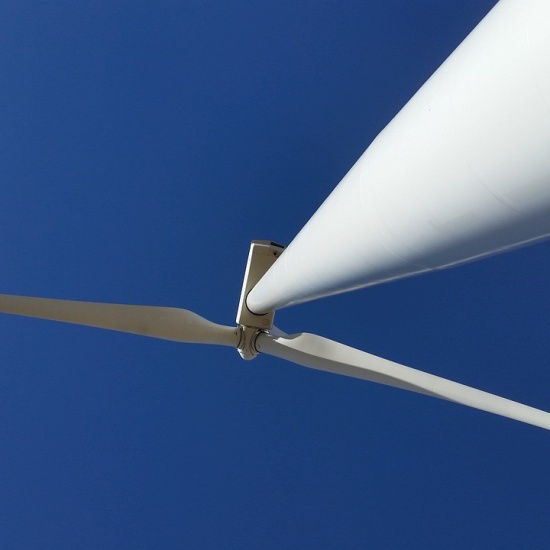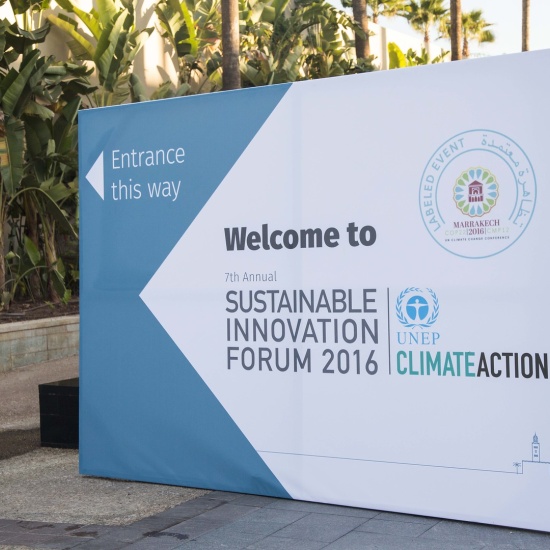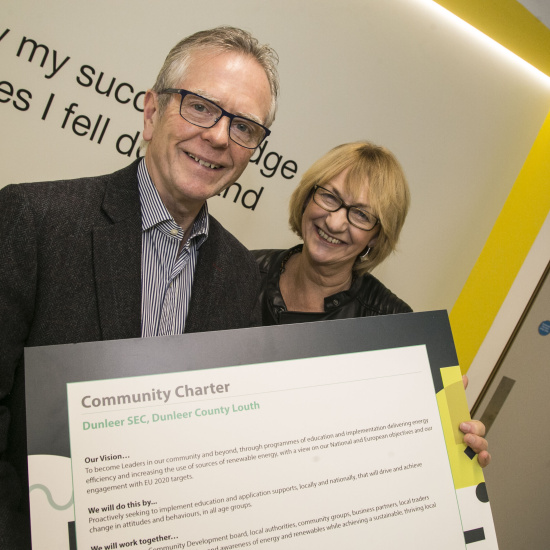Holiday Reflections - Tackling Climate Anxiety
Dr. Ciaran Byrne, Director of National Retrofit at SEAI, shares his personal experience of grappling with his own climate anxiety while on holiday with his family, from a change in mindset to practical actions
I have just returned from, what is fast becoming, our annual family holiday to France. Full car, roof box, bikes on the back, wife, kids and onto the Dublin-Cherbourg ferry. Then onwards to somewhere along the Atlantic coast for a few weeks of better weather, beach, beer, wine and minding your own children. This year I made one very important change, I left the work laptop at home. This year was to be an e-mail free zone, bliss!
I made a promise to myself to fully clear my mind of work and be 'present' on the holiday and actually enjoy it. Of course, I am in good company here and there is evidence to indicate that not only is this good for you to switch off from work, it actually improves your performance on return to the office. I guess the old adage of 'all work and no play makes Jack a dull boy' has some evidential basis to it.
It took the better part of a week to fully empty my mind of everything to do with work, (apparently, I am a high ruminator - a person who finds it difficult to switch off from work!) as it was a 'busy shift' this year prior to holidays.
What really surprised me was the unintended consequence of not checking my e-mails and letting my mind wander free. I naturally thought about and wandered back time and time again to a subject of deep interest to me, the environment. To be fair this was partially aided by my choice of holiday reading, David Attenborough's 'A Life on Our Planet- my witness statement and vision for the future' which I would recommend as essential reading. However, what I also did not anticipate was that my habitual checking of e-mails on the phone would be swiftly replaced by habitual checking of the phone for news generally, and environmental news specifically. Particularly the Guardian newspaper app, which is second to none in its reporting of environmental news.
So almost as a chorus to reading 'A Life on our Planet' I was hearing the real time the environmental issues impacting the world during the month of July, and it was scary, very scary.
The Climate Reality facing Warmer Destinations
All seven continents experienced extreme weather events in July. In Europe we were reacquainted with 'Cerebus', the three headed god of Greek mythology, which the high-pressure system causing the record heat wave in Southern Europe was named after. This was followed quickly by a second heat wave named aptly named after 'Charon', the ferryman that carries souls over the river Styx in Hades. Both of these weather systems were accompanied by multiple headlines of residents and tourists being evacuated from out of control wildfires, lives and businesses destroyed and tourists sweltering at popular destinations such as the Acropolis in Greece.
Elsewhere India and Pakistan experienced significant flash floods in early July with up to 153mm of rain reported as falling on one day in Delhi. Phoenix, Arizona recorded 31 days straight of daily high temperatures of 110oF or 43.3oC!
By the end of July Canadian wildfires burned over 120,000 km2; nearly twice as much as the previous record of 71,060 km2, burned during the entire of 1995 wildfire season. Just to put this in context the area of the Republic of Ireland is 70,253 km2. Thus by the end of July an area of almost 1.7 times the size of Ireland had been torched!!. What's even more striking was a graph produced on the Copernicus website (link) which estimated that from January 1st to July 31st accumulated carbon emissions from wildfires across Canada totalled 290 megatonnes, which they estimated was "more than double the previous record for the year as a whole and represents over 25% of the global total for 2023".
All of this was capped off by the historic fires which swept through the Hawaiian Island of Maui in early August, which now look likely to be the deadliest wildfires recorded in the US in over a century.
This is only a snap-shot of the headlines I was casually and regularly flicking through while doing the normal holiday things. However, I was starting to feel different, and it took me a while to put my finger on what it exactly it was. It was rising sense of anxiety, an eco-anxiety, and the sense that not only are we killing our planet, and fast (we have known this for a while now), but we are now on an unstoppable downhill trajectory, a bit like a snowball rolling down a hill gathering speed and size.
Tackling Climate Anxiety - Mindset
It was a strange one for me as I am an eternal 'bounded' optimist and yet here I was now noticing feelings of anxiety driven primarily by the relentless number of negative environmental headlines. The easy solution would be to just stop checking the phone and enjoy the holidays, but the genie was out of the bottle.
It turns out what I was calling eco-anxiety is actually called climate anxiety and it is a real thing. While not an officially recognised condition, it's more a distress related to the worries about climate change. None the less it is important enough for the American Psychological Association (APA) to publish significant guidance on this subject.
Anxiety itself is often linked to feelings of loss of control. So, it should be no big surprise that the sense that the climate is spiralling out of control, the 'snowball barrelling down hill gathering pace and size', could trigger feelings of climate anxiety. The good news is that there are ways to minimise this feeling of loss of control. You can switch away from the trigger. In my case I consciously switched from fixating on the bad news stories to the good news environmental stories, and good news generally, insofar as it was possible to actually find any being reported!
One of the other techniques to manage the sense of loss of control is to change focus and separate out the things we can control from those we can't, and then ensuring we are doing the most we can with these 'controllables' - i.e. we are 'controlling the controllables'.
Tackling Climate Anxiety - Actions
So, this brings me back to my holidays and trying to get a handle on a building sense of climate anxiety. Having time to reflect, I asked myself a few questions. What am I doing to minimise my personal impact on the environment? Am I doing enough? Are there other things I can do (and the answer is always yes)? Don't worry I'm not about to assume the environmental moral high ground and preach, but I encourage everyone to take five minutes and ask yourself if you can make one change to your daily practice which could meaningfully benefit the environment. That is what I did.
This could be as simple as walking, cycling or taking the bus rather than driving. Perhaps taking one less flight a year and opting to work from home, if that's possible. Choosing more locally produced food in the supermarket, choosing not to use a single use plastic such as a bottle of coke, recycling or repurposing an item rather than throwing it out. You could look for a way (or ways) to reduce your energy use at home.
True, these actions individually are unlikely to make much difference to the environment but, and here's the rub, on a collective national basis they really do. Plastic bag levies and smoking bans really demonstrate what collective effort looks (and smells!) like. But critically at an individual level, taking some of these actions can help to bring back some sense of control, that I am making my contribution to help the environment.
Given my role, I think it is not unfair to suggest that one could even think about taking a bigger step and improve the energy performance of your home - with a generous Government grant from SEAI. This would be a seriously pro-environmental behaviour and reduce the amount of CO2 being emitted from the residential sector. We, Ireland Inc., have extremely ambitious CO2 emission reduction targets to achieve right across the board from transport to agriculture, to business, to land use to our own homes. Many of the choices we are going to face in the coming years are going to be difficult, very difficult.
But choosing to improve the energy performance of your home is not one of them. It might take some investment but over time, and with government support, there are measures we can all take to improve our homes. Not to mention the multiple benefits you will reap from doing so - comfort, reduced energy bills, healthier environment for all.
So perhaps the next time you find yourself watching a David Attenborough documentary and having the life half scared out of you about the damage we are doing to the planet, you can quell the rising sense of climate anxiety by knowing that you have done what you can and have started on your home energy upgrade journey.




